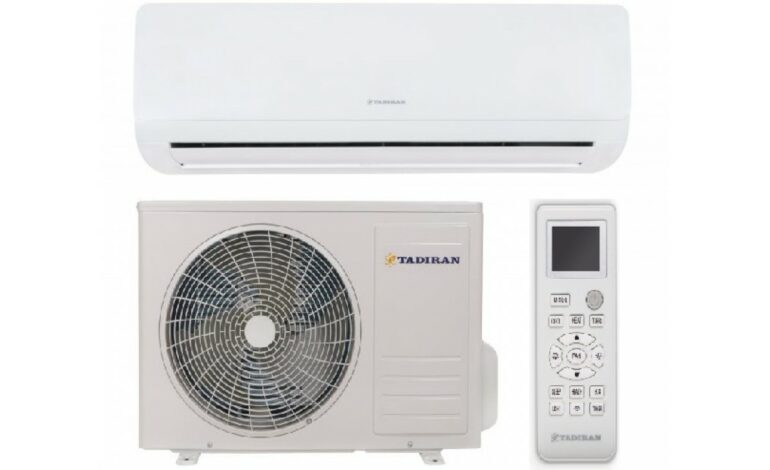Tadiran Air Conditioner Repair in Jerusalem. Freon Leaks Main Causes!

Freon leak in the air conditioner: causes, signs, consequences (video)
Finding a Freon Leak Using Soap Suds on an Air Conditioner
To search for a refrigerant leak, a soapy solution is often used: the photo shows how a small soap bubble forms under the lower nut – a clear sign of a leak in the refrigerant line
In most climate systems, freon R22 (CF2ClH) or the more modern R410a (CH2F2 * CHF2CF3) is used as a refrigerant. In air conditioners of the latest generation, completely environmentally friendly freon R32 (CF2H2) is increasingly common. In any case, freons are fluorine- and chlorine-containing refrigerants (CFC), which are the so-called “controlled substances”, the disposal of which must take place in accordance with certain rules.
If the coolant level in the system has dropped, then there is a leak. Many owners ignore this problem and continue to use the air conditioner for its intended purpose. Although most freons are considered non-toxic, under certain conditions (high concentration, high temperature, etc.), they can affect human health. Thus, the operation of an air conditioner with signs of a leak may be unsafe both for the residents of the serviced house or apartment, and for the environment.
One cause of the leak could be a faulty Schrader valve. Most often, the matter is damage to the rubber seal that protects the refrigeration circuit. Another possible cause may be a micro-crack in the capillary tube and or other pipes of the outdoor unit’s radiator, created by rubbing the same pipes against each other. It is also common to find poor-quality copper pipe connections when installing an air conditioner due to poor flaring or overtightened nuts. Leaking through the hole, the refrigerant evaporates quickly and can lead to a malfunction of the split systems and even to a negative impact on the health of the residents of the house.
Symptoms of poisoning with chlorine-containing (now used very rarely) refrigerants can be nausea, headache, and in rare cases, suffocation. When exposed to the skin, chlorine causes dryness and irritation. Short-term inhalation of the substance causes palpitations, loss of coordination, dizziness, while prolonged exposure can lead to more serious medical conditions such as shortness of breath, loss of consciousness and severe coughing.
Of course, the health effects of the refrigerant are considered first, but the air conditioner itself is the most directly and most tangibly affected during a leak. The lack of freon creates a large load on the compressor, which can lead to equipment failure. Even if it can be repaired later, it will cost a lot of money. And just the absence of 10% liquid in the system can lead to an increase in energy consumption up to 20%.
How to determine the signs of freon leakage from the air conditioner yourself:
The air conditioner became much worse to cool (or warm). At the same time, it should be remembered that the performance of a split system is also affected by the health of the compressor and the condition of the heat exchangers: if they are significantly contaminated, this significantly reduces the productivity of cold generation, which means they need service maintenance.
Ice on the nuts of the outdoor unit of the air conditioner
Frozen nut on the suction circuit due to low system pressure
Icing on the fittings of the outdoor unit or other elements of the refrigeration circuit. Such an effect can also serve as an indirect confirmation of the lack of freon in the system. However, it should be noted that this is not a 100% leakage rate and other factors may be responsible for such effects. In any case, it is recommended to seek the advice of specialists.
Oil leak on the outdoor unit of the air conditioner
Explicit greasy smudges at the junction of copper pipes with the outdoor unit (leakage of freon, and with it oil)
The appearance of oily (greasy) smudges at the junctions of copper pipes, as well as on the heat exchangers of the outdoor or indoor units. In poor-quality docking joints, soldering joints or vibration cracks, and possibly due to factory defects, freon leaks along with working oil, which serves as a kind of malfunction indicator.
Some studies have also shown that CFCs are poorly soluble in soil. Penetrating through it, they can pollute underground water sources, which ultimately not only poses a danger to local flora and fauna, but also makes some wells unsuitable for use.
If a refrigerant leak is detected, stop the air conditioner immediately and call a certified technician to fix the problem as soon as possible. It is important to remember that an attempt to solve this problem on your own can lead to even more disastrous consequences, so it is recommended to trust the repair to professionals.
